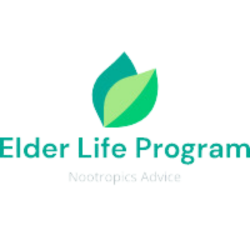Pterostilbene, a powerful antioxidant found in blueberries, grapes, and the bark of the Indian Kino Tree. This little-known compound has been making waves in the scientific community for its potential benefits on cognitive health.
Pterostilbene, pronounced tero-STILL-bean, is a naturally occurring compound that belongs to a class of compounds known as stilbenes. Stilbenes are known for their antioxidant properties, which means they can help protect our bodies from damage caused by harmful molecules called free radicals.

Now, you might be wondering, "Why should I care about cognitive health?" Well, maintaining good cognitive health is crucial for our overall well-being. It allows us to perform all our mental processes, like learning new things, remembering information, problem-solving, and decision-making. And that's where Pterostilbene comes in.
Now, you might have heard of a compound called Resveratrol, another antioxidant found in grapes and red wine. Pterostilbene is often compared to Resveratrol due to their similar structures. However, Pterostilbene has a couple of advantages over Resveratrol. First, its structure allows it to cross the blood-brain barrier more quickly and stay in the body longer than Resveratrol, enhancing its effectiveness. Second, while both compounds have antioxidant properties, they have different functions due to their structural differences. So, while Resveratrol is great, Pterostilbene is not just a replacement; it's a whole different ball game.
Let's delve deeper into how Pterostilbene affects the brain and improves cognitive function. First off, it's known for controlling brain inflammation. Inflammation in the brain can lead to cognitive decline and various brain disorders. By controlling this inflammation, Pterostilbene can help maintain brain health and function.

Next, Pterostilbene enhances the production of dopamine, a neurotransmitter that plays a significant role in our mood, motivation, and memory. It's like the brain's "feel-good" chemical. When dopamine levels are balanced, we feel more alert, focused, and motivated. Pterostilbene helps prevent the loss of dopamine from memory centers in the brain, thereby improving our memory and learning capabilities.
Pterostilbene also has the potential to reverse cognitive decline and combat brain cell aging. As we age, our cognitive abilities naturally decline. However, Pterostilbene can help slow down this process and even reverse some of the effects of cognitive decline. It does this by promoting neuroplasticity, the brain's ability to reorganize itself by forming new neural connections throughout life.

Neuroplasticity allows the neurons (nerve cells) in the brain to compensate for injury and disease and adjust their activities in response to new situations or changes in their environment.
One of the unique abilities of Pterostilbene is its ability to cross the blood-brain barrier. The blood-brain barrier is a protective shield that prevents potentially harmful substances in the bloodstream from entering the brain. However, this barrier can also prevent beneficial substances from reaching the brain. Pterostilbene's structure allows it to cross this barrier easily, ensuring that it can exert its beneficial effects directly on the brain.

Finally, let's talk about the concept of neuroplasticity and how Pterostilbene promotes it. Neuroplasticity is the brain's ability to change and adapt as a result of experience. It's what allows us to learn new things and remember information. Pterostilbene promotes neuroplasticity by decreasing reactive oxygen species (harmful molecules that can damage cells) and boosting essential antioxidants for brain health. This means that Pterostilbene not only protects the brain from damage but also helps it adapt and improve over time.
Scientific Studies and Clinical Trials
Let's dive into the nitty-gritty of the science behind Pterostilbene. One of the most intriguing aspects of this compound is its interaction with reactive oxygen species-responsive nanocarriers. These nanocarriers are like tiny delivery trucks, carrying Pterostilbene to where it's needed most, especially in managing conditions like murine colitis. This is a big deal because it affects both innate and adaptive immune responses, which are crucial for our overall health.
Now, onto the clinical trials and studies. One of the most significant findings is the increase of Brain-Derived Neurotrophic Factor (BDNF) in the hippocampus. This is the part of the brain that's responsible for learning and memory. So, in layman's terms, Pterostilbene is like a personal trainer for your brain, helping it to learn and remember better.
Another interesting finding is the improvement in spatial working memory tasks. This means that Pterostilbene could potentially help you remember where you left your keys or parked your car. It's like having a built-in GPS for your brain!

Moreover, Pterostilbene has shown potential in treating cognitive issues and brain disorders. It's like a Swiss Army knife for the brain, with a tool for every problem. However, it's important to note that more research is needed in this area.
Benefits and Challenges of Pterostilbene
Pterostilbene is a bit of a superhero when it comes to cognitive function. Its antioxidant properties help to control brain inflammation and enhance dopamine production, which is crucial for mood regulation and cognitive function. Plus, its structure allows it to cross the blood-brain barrier quickly, making it more effective than other compounds.

One of Pterostilbene's superpowers is its lipophilic properties. This means it can easily cross cell walls, making it easier for it to reach the brain and do its job. It's like having a VIP pass to the brain!
However, every superhero has its kryptonite, and for Pterostilbene, it's its solubility and oral absorption rate. This means that it can be difficult for the body to absorb Pterostilbene, which can limit its effectiveness. But don't worry, scientists are working on ways to overcome this challenge.
Conclusion
So, what have we learned about Pterostilbene? It's a powerful antioxidant that can help to improve cognitive function, enhance memory, and potentially treat brain disorders. However, it's not a magic bullet, and more research is needed to fully understand its potential.
Looking to the future, Pterostilbene could play a significant role in cognitive health treatment and prevention. It's like a promising new recruit on the team of cognitive health superheroes.

But don't just take my word for it. I encourage you to do your own research and consider whether Pterostilbene might be a beneficial addition to your dietary regimen. After all, who wouldn't want a personal trainer for their brain?
Remember, knowledge is power, and understanding how compounds like Pterostilbene work can help us make informed decisions about our health. So, keep learning, keep questioning, and keep exploring the fascinating world of cognitive health.


0 comments